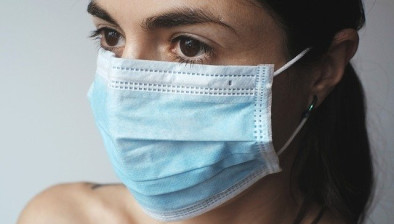NI High Court: Mother was correctly denied breastfeeding sessions with infant child during pandemic

Northern Ireland’s High Court has found that a health and social care trust’s decision to deny visitation between a breastfeeding mother and her child was correct given the risk of Covid-19 infection.

About this case:
- Citation:[2022] NIFam 15
- Judgment:
- Court:NI High Court
- Judge:Judge David McFarland
The court noted that the trust had responded proportionately, and had taken steps to ensure that the child could benefit from the mother’s frozen breast milk instead.
Background
This application concerned a series of decisions by a health and social care trust relating to contact between the mother and OS, her new-born child, which she alleged was in breach of sections 7 and 8 of the Human Rights Act 1998.
The child was born in January 2020 and was the second child of the mother. Several days after OS’s birth, the trust issued care order proceedings and the case was transferred immediately by the Family Proceedings Court to the High Court. Mr Justice O’Hara made an interim care order placing OS in the care of the trust.
This order approved an interim care plan for the removal of OS from the care of the parents and into the care of a foster carer who was also looking after the older child. The court granted a contact order between OS and his parents “five times per week for two hours on dates and times to be agreed by the trust”.
Despite the separation, the mother continued to breastfeed the child both during physical contact with the baby and by expressing her milk, with the trust providing storage and transport to allow the milk to be fed to the child by the foster carer.
In March 2020, due to the Covid-19 pandemic, the trust ceased direct contact between the mother and OS. Instead, the children and parents took part in indirect contact via live-link video sessions.
The mother continued to provide her milk under the existing arrangement. Recordings of OS crying were made and provided to the mother to facilitate lactation. The milk was frozen, stored and transported to the foster carer by the trust.
In May 2020, the mother sought review of the contact arrangements by the court. This was followed in June 2020 by the mother’s human rights notice, which claimed that her ECHR right to a fair trial, respect for her private and family life, and right to marry and found a family had been infringed by the trust.
The trust’s decision making
After the national lockdown was put in place, both parents were advised by the trust that all direct face-to-face contact was to be suspended with immediate effect and that indirect video contact would be implemented.
When the mother did have direct contact opportunities, such as during medical appointments with the child, she breached the GP’s practice guidelines by not maintaining social distancing and by holding the child.
In May 2020, the trust became aware that both parents were not complying with social distancing requirements in their own lives. Although living in separate households, they were meeting each other, and both were meeting other people without social distancing.
Following further guidance about the pandemic, the trust chose not to alter the terms of the mother’s contact with the child, and when they offered contact sessions in a public park, she refused to attend. The issue was whether the interference struck a fair balance between the trust’s interest in the protection of health and the interests of the mother and the child.
Discussion
The court noted that contact between a child in care (irrespective of age) and its parents has been recognised as being of critical importance, and prohibiting any contact between a parent and a child requires “sufficiently valid reasons”.
The trust conceded that throughout this period there was an interference with the mother’s Article 8 rights, but contended that it carried out proper evaluations and that the interference was justified in the context of the threat to both public health and the health of the individuals involved.
The court accepted that the removal of a child from a breastfeeding environment is a change in a baby’s circumstances that will impact on the baby on a physical and emotional level. However, the impact on OS’s welfare was somewhat mitigated by the provision of the mother’s frozen breast milk through the arrangement with the trust.
The court cautioned that it can be “easy to cast a critical eye over some of the decision-making of March 2020” in hindsight. Despite the circumstances, the court considered that a proper evaluation was carried out by the trust, taking into account the relevant advice at that time.
The public health risk was critical, and it was “correct to place greater weight to this risk, thus diminishing the importance of the Article 8 right”.
The trust continued to provide the breast milk to the child, thus providing for appropriate nourishment for the child. In essence what was being restricted and denied was the opportunity of bonding between the mother and the child.
The court had been asked to consider the fact that the trust had not referenced WHO guidance for evaluation and risk assessment.
However, the court found that the WHO advice was for an existing family unit in its own “bubble”; it did not apply where the mother, father and child were living apart and the contact sessions involved their bubbles as well as carers and social workers.
The risk to OS in any proposed skin-to-skin contact session was going to be low, but the feature in this case was that the adults were going to have to travel to facilitate the contact and those adults could be exposed and could catch the virus themselves and/or infect others.
Conclusion
The court concluded that actual breastfeeding and skin-to-skin contact was an important consideration, but when placed against the other factors, it could not be said that the trust’s decisions were wrong in principle or disproportionate.
The trust was to be “commended, as is the mother, that the child continued to receive the mother’s milk throughout this period. Physical face to face and skin to skin contact proved to be impossible to reinstate within a safe environment and the decision making of the trust was appropriate and correct”.
Accordingly, the application was be dismissed.









